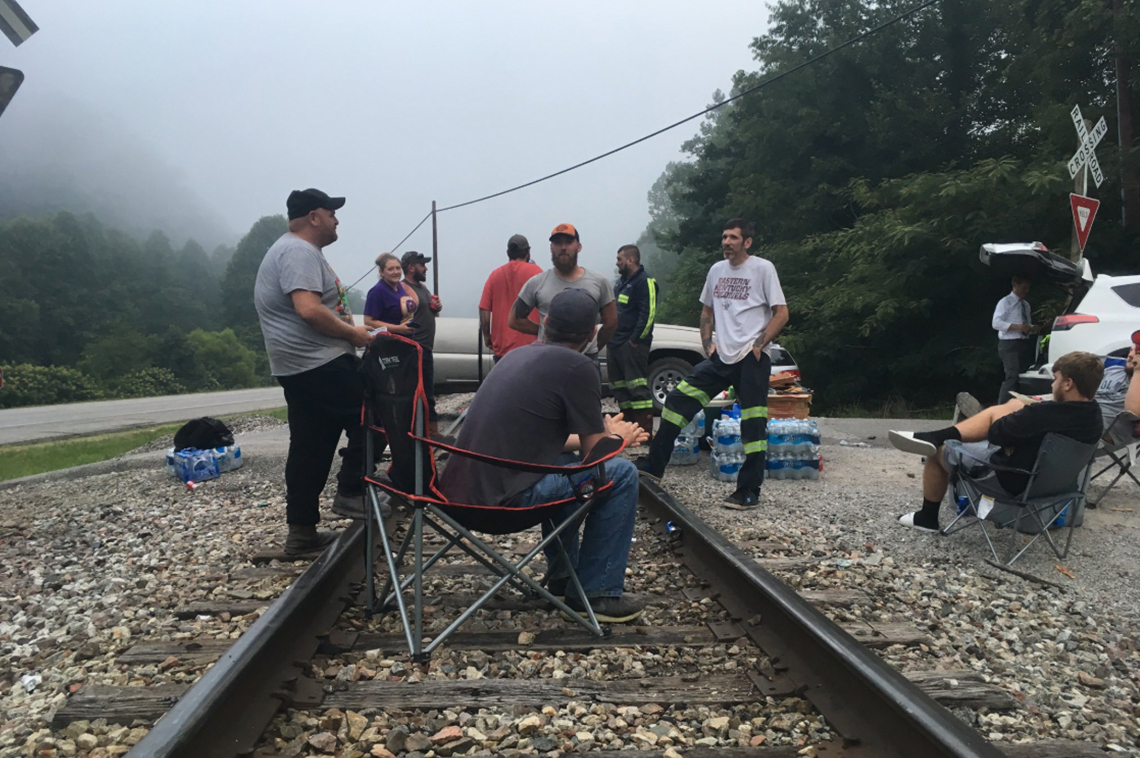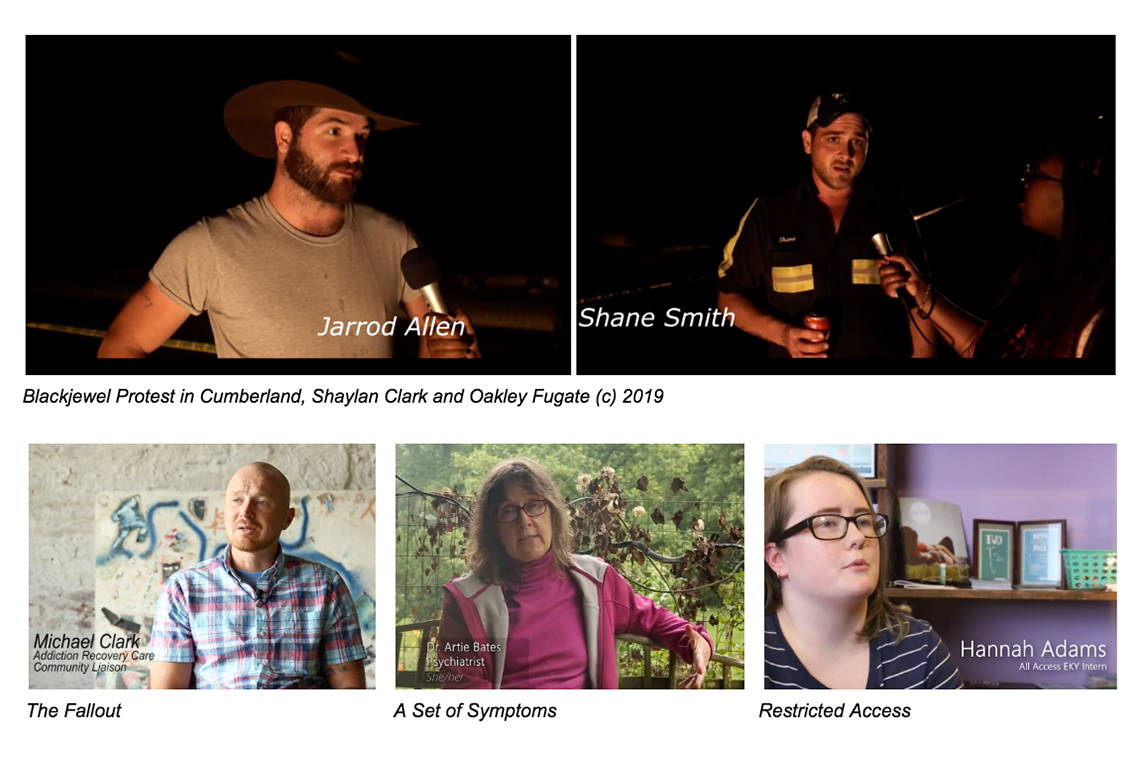

“One thing about it is you can never trust the coal company. … They call it Bloody Harlan for a reason. We don’t intend no harm. We’re just here trying to get what’s rightfully owed to us.”
That’s what Shane Smith, a former Blackjewel and Revelation Energy miner, told alumni of our Appalachian Media Institute when they interviewed him last week on the train tracks in Harlan County where miners had gathered to protest. Behind them was an estimated $1 million in coal that they’d mined themselves before Blackjewel declared bankruptcy in early June. More than 1,000 miners’ paychecks bounced at the same time that they discovered their employer had not been making 401(k) contributions — or even child support payments.
“On the 4th of July we had a daughter that was born, we had our sixth child. They actually withdrew my money on the 5th,” Smith said in his interview with AMI.
The community response has been unequivocal.
Donations have poured in, non-miners have joined the protest, and Girls Rock Whitesburg performed the classic “Which Side Are You On?” in downtown Whitesburg, originally written for the Harlan County War by miner’s wife Florence Reece. Local journalists like our own Sydney Boles have been camped out alongside protesters, too, filing stories from the field.
But it’s Appalshop’s youngest filmmakers whose coverage has been most striking. Shaylan Clark and Oakley Fugate talked to Smith several days into the protest, their interview punctuated by the furious car horns of passerby honking in support. The final short they produced is a heavyweight, cutting between several miners explaining the Blackjewel legal proceedings, their connection to coal, their love of the work, and their determination to get what they’re owed.
Told in miners’ own voices, it’s an even more powerful story when you consider that it was shot and edited by young people of color and those who are differently abled in a region that's often erroneously whitewashed.
And it’s not the only impressive work to come out of our Appalachian Media Institute.
Just days before Fugate and Clark were on the tracks in Harlan, our newest AMI cohort screened three new films as the culmination of their Summer Documentary Institute. They tackle addiction, reproductive health, alternative rehabilitation, mental health and why it’s time to break the silence.
Our young people are clear-eyed about our region. As they’re mentored by older filmmakers, they’re becoming clear-eyed about how to tell our own stories, too.
We couldn’t be prouder of them.





